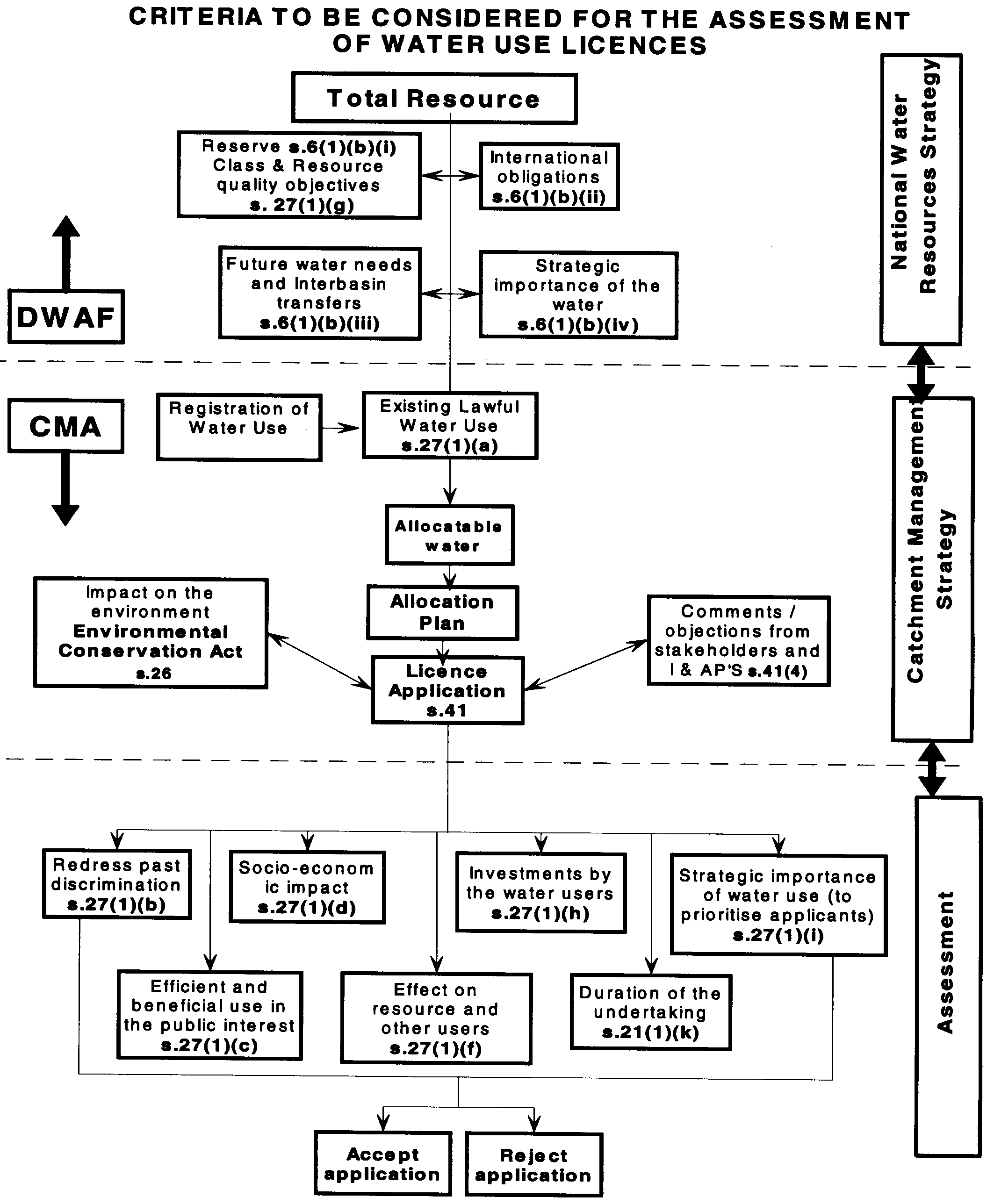
6. DEFINING THE PROBLEM
In defining the problem framework it is necessary to outline the responsibilities of the CMAs as the DSS is being designed to support the activities associated with CMAs. In terms of the 1998 NWA, CMAs are responsible for the development and implementation of the CMS as shown in Figure 3.

Figure 3 Criteria to be considered for the assessment of water use licenses
A CMS must set principles for allocating water to existing and prospective users, taking into account all matters relevant to the protection, use, development, conservation, management and control of water resources (NWA, 1998). The CMS must be in agreement with the National Water Resource Strategy (NWRS). In the process of developing this strategy the CMA must seek co-operation and agreement on water related matters from the various stakeholders and interested persons.
CMAs are responsible for the allocation, registration and licensing of water users. According to the NWA (1998) all water uses must be licensed "unless it is listed under schedule 1, is an existing water lawful use, is permissible under a general authorisation or if a responsible authority waves the need for a license". When allocating water and issuing water licenses the CMA needs to take into account the following factors (Section 27 of the NWA, 1998):
The CMAs are therefore responsible for both longer term planning for the WMAs and the short term processing of individual water licensing applications.
In developing the CMS, the CMA must formulate water allocation plans that contain strategies around water allocation, with the objectives and guidelines associated with such strategies. The CMA, then needs to formulate procedures required to implement the allocation plan set out in the CMS as set out in Figure 3.
The CMA must conform to the guidelines provided in the NWRS in terms of
It is also necessary for the CMA to take into account any other plans from other institutions which may be directly or indirectly associated to the water sector. Hence, the CMA must, when developing and implementing its strategy, foster the development of cooperative governance.
The CMA is also responsible for the implementation of the CMS as well as the assessment of individual license applications. When assessing individual license applications it is necessary for the CMA to take into account all the aspects outlined in Section 27 of the NWA (1998), which has been outlined previously.
When making a decision on individual license applications the representatives of the CMA need to consider the following aspects before the issue of the license:
In defining the problem framework, the information requirements of decision makers can be deduced in terms of both the relevant information needs and the scale at which the information is required. Information can hence be broken down into three different levels in terms of base data requirements, modelling requirements and stakeholder participation. In the next section the information requirements to set up the CMS and assess individual license applications are outlined.